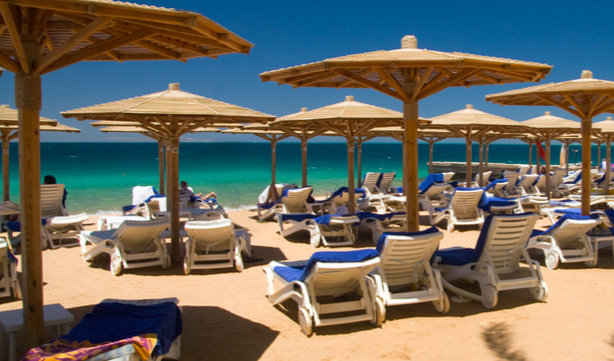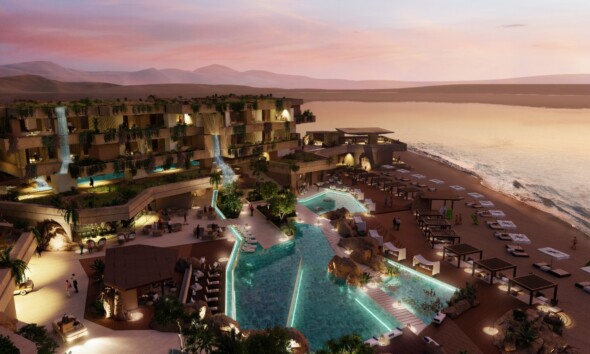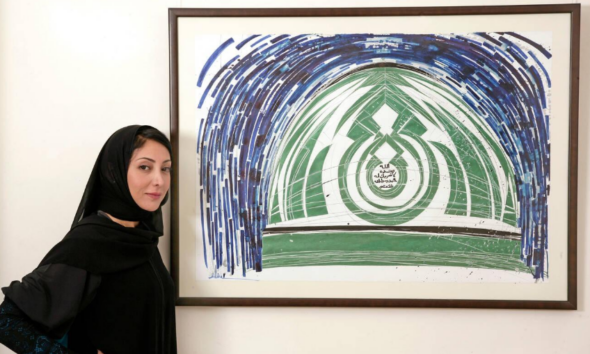Jordan: Tourism & Hotels Report – November 2018

EXECUTIVE SUMMARY
As the second largest private employer, and the second highest generator of foreign exchange, Jordan’s tourism industry plays a vital role in its economy. In 2014, the sector directly contributed to 6.2% of Jordan’s GDP, while the industry’s total contribution to the GDP (including indirect and induced contribution) stood at 23%. Jordan’s role as a regional peacemaker, on-going support from the government, and its diverse touristic offerings, including antiq- uities, hospitality, medical tourism, and adventure activities, will encourage growth in the industry in the coming years. Despite this, issues related to regional conflict have deterred visitors in recent years, while a large portion of government expenditures have been re-directed to address the influx of over 600,000 refugees to the country since 2014.
An increasingly popular tourism destination, Jordan boasts a wide array of cultural offerings. Jordan boasts numer- ous historical and UNESCO World Heritage sites, in addition to numerous medieval mosques and churches, along with unspoiled natural locations such as the Jordan River. Jordan is also a popular destination for medical and health tourism, with many wellness resorts concentrated on the coast of the Red Sea. Adventure tourism has also become increasingly popular, featuring activities such as scuba diving, hiking and rock climbing. Wildlife and wetland reserves also offer activities such as bird watching and wildlife parks. The country is also a popular nightlife destination, ranging from high-end nightclubs in Amman to beach raves at the Dead Sea. Finally, Jordan remains a premier destination for luxury business and leisure travel due to its strong tourist infrastructure in the form of luxury hotels, spas and shopping outlets.
Jordan’s economy is known for being one of the freest in the region and the country has free trade agreements with the United States, Canada, and the European Union. However, the country remains dependent on outside assistance and policymakers are hard-pressed to enact reforms for fear of losing their jobs in one of the systematic cabinet purges that has occurred in recent years. Beginning in 2011, as a result of the Arab Spring protests that swept the region, Jordan’s economy took a significant hit: FDI declined sharply by 34%, shrinking exports, which make up 70% of GDP. Tourism declined 5% and foreign reserved were reduced by 8%, and Jordan’s credit rating was downgraded from ‘stable’ to ‘negative.’ Despite this, Jordan’s tourism sector and greater economy has started to rebound over the last year, supported by relative political stability and visitors originating from the GCC and Europe.
Despite being one of the most stable countries in the Middle East and North African (MENA) region, turmoil in neighbouring countries will continue to pose a challenge to Jordan’s tourism industry going forward due. While there have been reports of terrorist attacks in the country since the start of the Syrian war, none have been focused on the country’s capital of Amman or any popular tourist areas. Regionally, the situation remains tumultuous; the situation in Syria has continued to deteriorate, while the prolonged Israeli-Palestinian conflict poses a threat on the country’s western border. Despite Jordan’s relative stability amidst regional chaos, sustained
As the second largest private employer, and the second highest generator of foreign exchange, Jordan’s tourism industry plays a vital role in its economy. In 2014, the sector directly contributed to 6.2% of Jordan’s GDP, while the industry’s total contribution to the GDP (including indirect and induced contribution) stood at 23%. Jordan’s role as a regional peacemaker, on-going support from the government, and its diverse touristic offerings, including antiq- uities, hospitality, medical tourism, and adventure activities, will encourage growth in the industry in the coming years. Despite this, issues related to regional conflict have deterred visitors in recent years, while a large portion of government expenditures have been re-directed to address the influx of over 600,000 refugees to the country since 2014.
An increasingly popular tourism destination, Jordan boasts a wide array of cultural offerings. Jordan boasts numer- ous historical and UNESCO World Heritage sites, in addition to numerous medieval mosques and churches, along with unspoiled natural locations such as the Jordan River. Jordan is also a popular destination for medical and health tourism, with many wellness resorts concentrated on the coast of the Red Sea. Adventure tourism has also become increasingly popular, featuring activities such as scuba diving, hiking and rock climbing. Wildlife and wetland reserves also offer activities such as bird watching and wildlife parks. The country is also a popular nightlife destination, ranging from high-end nightclubs in Amman to beach raves at the Dead Sea. Finally, Jordan remains a premier destination for luxury business and leisure travel due to its strong tourist infrastructure in the form of luxury hotels, spas and shopping outlets.
Jordan’s economy is known for being one of the freest in the region and the country has free trade agreements with the United States, Canada, and the European Union. However, the country remains dependent on outside assistance and policymakers are hard-pressed to enact reforms for fear of losing their jobs in one of the systematic cabinet purges that has occurred in recent years. Beginning in 2011, as a result of the Arab Spring protests that swept the region, Jordan’s economy took a significant hit: FDI declined sharply by 34%, shrinking exports, which make up 70% of GDP. Tourism declined 5% and foreign reserved were reduced by 8%, and Jordan’s credit rating was downgraded from ‘stable’ to ‘negative.’ Despite this, Jordan’s tourism sector and greater economy has started to rebound over the last year, supported by relative political stability and visitors originating from the GCC and Europe.
Despite being one of the most stable countries in the Middle East and North African (MENA) region, turmoil in neighbouring countries will continue to pose a challenge to Jordan’s tourism industry going forward due. While there have been reports of terrorist attacks in the country since the start of the Syrian war, none have been focused on the country’s capital of Amman or any popular tourist areas. Regionally, the situation remains tumultuous; the situation in Syria has continued to deteriorate, while the prolonged Israeli-Palestinian conflict poses a threat on the country’s western border. Despite Jordan’s relative stability amidst regional chaos, sustained.






